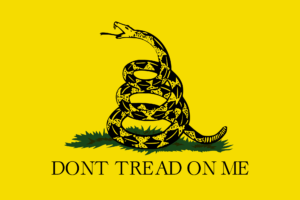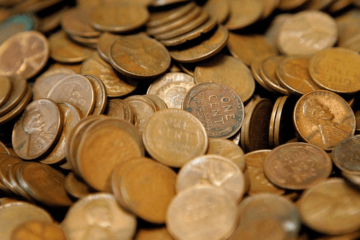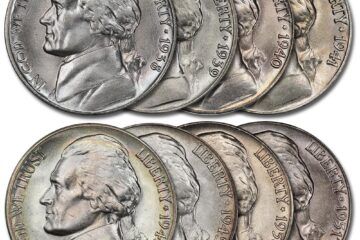Free Trade in Your Pocket
The Libertarian’s Guide to Coin Collecting
Key Takeaways
- A Tangible Representation of Free Trade: Coins embody the concept of voluntary exchange, with value determined by the market, not government decree.
- A Decentralized Market: Free from central authority, the coin market thrives on the collective decisions of collectors, appraisers, and dealers.
- A Historical Artifact: Coins hold historical significance, reflecting economic trends, political shifts, and the importance of sound money throughout history.
- A Hedge Against the System: Silver stacking and rare coin collecting offer protection against inflation and a way to diversify wealth beyond traditional financial instruments.
- A Community Built on Trust: The coin market fosters a community where reputation and expertise are paramount, promoting self-regulation and fair dealing.
A Libertarian’s Paradise: Why Coin Collecting Holds Special Significance
For many, coin collecting might seem like a dusty relic of the past. But for libertarians, it’s much more than a hobby – it’s a microcosm of everything they believe in. From the tangible representation of free trade to the self-regulating nature of the market, coin collecting embodies the core principles of libertarianism.

Free Trade in Your Pocket
For libertarians, coins are more than just metal discs. They represent the physical embodiment of free trade. Unlike government-issued fiat currency, coins have intrinsic value based on the metal they’re made of. This value is determined by the market, not by government manipulation.
When you buy, sell, or trade a coin, you’re engaging in a voluntary exchange. You decide what a particular coin is worth based on its rarity, condition, and historical significance. The seller agrees, and the transaction happens – all without government interference.
This voluntary exchange reflects a core libertarian principle: individuals have the right to decide how they exchange value, and the market, not the government, should determine prices.
A Market Unchained
The coin market stands in stark contrast to the heavily regulated world of finance. There’s no central authority dictating prices, setting quotas, or bailing out failing businesses. The value of a coin is determined by the collective decisions of collectors, appraisers, and dealers.
This decentralized nature is another reason why libertarians find the coin market so appealing. They believe that free markets, driven by individual actors pursuing their own self-interest, are the most efficient and productive way to allocate resources. In the coin market, collectors act as these individual actors, constantly evaluating and influencing the value of different coins.
History in Your Hand
Coins are more than just currency; they’re tiny time capsules holding historical significance. They tell stories of economic booms and busts, political upheavals, and cultural shifts. For libertarians who value limited government and sound money, coins serve as a reminder of the importance of these principles throughout history.
For example, certain coins might reflect periods of economic stability when governments adhered to sound money policies. Conversely, worn or debased coins could represent times of government mismanagement and inflation. By studying coins, libertarians can learn from the past and advocate for policies that promote economic freedom and a stable currency.
A Hedge Against the System: Silver Stacking and Beyond
Rare coins, with their limited supply and ever-increasing demand, can also be seen as a hedge against the traditional financial system. In a world where governments can manipulate interest rates and print money at will, libertarians value alternative stores of value.
Owning rare coins provides a sense of security, knowing that their value is tied to something tangible and not subject to government control. This aligns with the libertarian belief in individual responsibility and the importance of diversifying wealth beyond traditional financial instruments.
For those seeking a more affordable way to participate, many libertarians turn to silver stacking. Silver stacking refers to the practice of accumulating physical silver over time, typically in the form of silver bars or rounds. Unlike rare coins, silver bullion is a more accessible entry point into the world of precious metals.
Stackers often target 90% silver coins, minted before 1965 in the US, which contain a high silver content by weight. These coins can be purchased for close to the spot price of silver, making them a cost-effective way to accumulate silver holdings.
By accumulating silver, libertarians aim to protect their wealth from inflation and economic uncertainty. Silver has a long history as a form of currency, and its intrinsic value as a precious metal makes it a potential hedge against the devaluation of fiat currencies.
A Community Built on Trust and Shared Passion
The coin market isn’t just about buying and selling; it’s also about a thriving community of collectors. Online forums, coin clubs, and conventions bring together people who share a passion for numismatics. Libertarians value self-regulation and believe that communities can effectively police themselves without excessive government oversight.
The coin market exemplifies this principle. Collectors rely on their reputation and expertise to build trust with each other. A seller with a history of misrepresenting coins will quickly find themself ostracized by the community. This self-regulating system ensures fair dealing and protects buyers from bad actors.
The Takeaway: A Model for a Freer Future
The coin market serves as a shining example of a thriving marketplace fueled by individual initiative and voluntary exchange. It operates with minimal government intervention, yet leverages essential government services to function flawlessly. This is a testament to the power of free markets, and a model for how other industries can potentially flourish with less government control and more individual freedom.
Beyond Coins: The Future of Libertarian Markets
The lessons learned from the coin market can be applied to a broader vision of a free-market society. Libertarians believe that individual liberty and economic prosperity are best achieved when people are allowed to pursue their own goals without excessive government interference.
The coin market exemplifies this principle. It demonstrates the power of:
- Decentralization: No single entity dictates prices or controls the market.
- Voluntary exchange: Transactions are based on mutual agreement, not government coercion.
- Sound Money: Silver and rare coins offer a hedge against inflation and government manipulation of fiat currencies.
- Self-regulation: Collectors rely on reputation and expertise to ensure fair dealing.
By promoting these principles, libertarians believe we can create a more prosperous and just society for everyone.
Whether you’re a libertarian with a passion for free markets, or simply a curious history buff, the coin market offers a fascinating case study in economic freedom. So, why not delve into this world of history, value, and individual liberty? You might just discover a new hobby and a deeper appreciation for the power of free markets.


